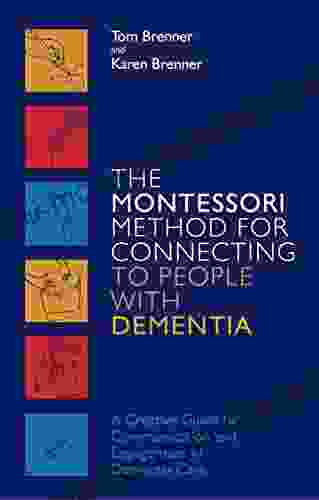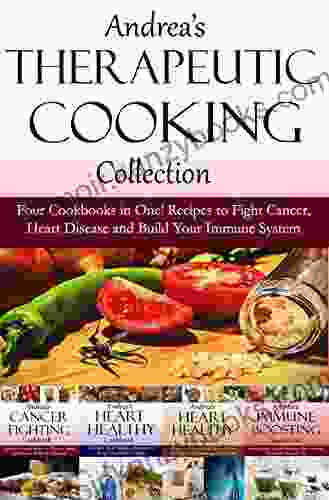Holistic Advice On How To Get Handle On Your Allergies And Prevent Illness

4.6 out of 5
| Language | : | English |
| File size | : | 699 KB |
| Text-to-Speech | : | Enabled |
| Screen Reader | : | Supported |
| Enhanced typesetting | : | Enabled |
| Word Wise | : | Enabled |
| Print length | : | 46 pages |
| Lending | : | Enabled |
Allergies are a common problem that can affect people of all ages. They can cause a variety of symptoms, including sneezing, runny nose, itchy eyes, and difficulty breathing. While there is no cure for allergies, there are a number of things you can do to manage your symptoms and prevent them from getting worse.
Identify Your Triggers
The first step to managing your allergies is to identify your triggers. These can include things like pollen, dust, pet dander, and certain foods. Once you know what your triggers are, you can take steps to avoid them or reduce your exposure to them.
Avoid Your Triggers
The best way to prevent allergy symptoms is to avoid your triggers. This may mean staying indoors on days when the pollen count is high, or avoiding foods that you know you are allergic to. If you cannot avoid your triggers, you can take steps to reduce your exposure to them. For example, you can wear a mask when you are outdoors, or use a HEPA filter in your home.
Over-the-Counter Medications
There are a number of over-the-counter medications that can help to relieve allergy symptoms. These include antihistamines, decongestants, and nasal sprays. Antihistamines block the histamines that are produced by the body in response to an allergen. Decongestants help to reduce swelling in the nasal passages. Nasal sprays can help to clear nasal congestion and reduce inflammation.
Prescription Medications
If over-the-counter medications are not effective in controlling your allergy symptoms, your doctor may prescribe stronger medications. These medications may include corticosteroids, leukotriene modifiers, and immunotherapy. Corticosteroids reduce inflammation in the nasal passages. Leukotriene modifiers block the production of leukotrienes, which are chemicals that cause inflammation. Immunotherapy is a long-term treatment that involves exposing you to small amounts of the allergen that you are allergic to. Over time, this can help your body to build up a tolerance to the allergen and reduce your symptoms.
Natural Remedies
There are a number of natural remedies that may help to relieve allergy symptoms. These include:
- Quercetin is a flavonoid that has antihistamine and anti-inflammatory properties.
- Stinging nettle is an herb that has anti-inflammatory and anti-allergic properties.
- Butterbur is an herb that has anti-inflammatory and antispasmodic properties.
- Local honey contains bee pollen, which can help to build up your immunity to allergens.
- Eucalyptus oil has decongestant and anti-inflammatory properties.
- Tea tree oil has antibacterial and anti-inflammatory properties.
Lifestyle Changes
There are a number of lifestyle changes that you can make to help manage your allergies. These include:
- Get regular exercise. Exercise helps to improve your overall health and well-being, which can help to reduce your allergy symptoms.
- Eat a healthy diet. Eating a healthy diet that is rich in fruits, vegetables, and whole grains can help to boost your immune system and reduce your allergy symptoms.
- Get enough sleep. Getting enough sleep helps to reduce stress and improve your overall health, which can help to reduce your allergy symptoms.
- Manage stress. Stress can trigger allergy symptoms. Finding healthy ways to manage stress can help to reduce your allergy symptoms.
Allergies are a common problem that can affect people of all ages. While there is no cure for allergies, there are a number of things you can do to manage your symptoms and prevent them from getting worse. By following the tips in this article, you can learn how to get a handle on your allergies and prevent illness.
4.6 out of 5
| Language | : | English |
| File size | : | 699 KB |
| Text-to-Speech | : | Enabled |
| Screen Reader | : | Supported |
| Enhanced typesetting | : | Enabled |
| Word Wise | : | Enabled |
| Print length | : | 46 pages |
| Lending | : | Enabled |
Do you want to contribute by writing guest posts on this blog?
Please contact us and send us a resume of previous articles that you have written.
 Book
Book Novel
Novel Page
Page Chapter
Chapter Text
Text Story
Story Genre
Genre Reader
Reader Library
Library Paperback
Paperback E-book
E-book Magazine
Magazine Newspaper
Newspaper Paragraph
Paragraph Sentence
Sentence Bookmark
Bookmark Shelf
Shelf Glossary
Glossary Bibliography
Bibliography Foreword
Foreword Preface
Preface Synopsis
Synopsis Annotation
Annotation Footnote
Footnote Manuscript
Manuscript Scroll
Scroll Codex
Codex Tome
Tome Bestseller
Bestseller Classics
Classics Library card
Library card Narrative
Narrative Biography
Biography Autobiography
Autobiography Memoir
Memoir Reference
Reference Encyclopedia
Encyclopedia Virginia Willis
Virginia Willis Amby Cooper
Amby Cooper Nostradamus
Nostradamus Andrea Rock
Andrea Rock Dan Shapiro
Dan Shapiro Jeffery Weaver
Jeffery Weaver Amilya Antonetti
Amilya Antonetti Hugh Newman
Hugh Newman And Blood Institute The National Heart Lung
And Blood Institute The National Heart Lung Noah White
Noah White Anastasia Suen
Anastasia Suen Heather Lawless
Heather Lawless Joan Shenton
Joan Shenton Mojang Ab
Mojang Ab Sheryl Jensen
Sheryl Jensen White Souls
White Souls Amy Connell
Amy Connell Amy Shields
Amy Shields Amy Willcock
Amy Willcock Cara J Stevens
Cara J Stevens
Light bulbAdvertise smarter! Our strategic ad space ensures maximum exposure. Reserve your spot today!

 Winston HayesThe Montessori Method For Connecting To People With Dementia: A Comprehensive...
Winston HayesThe Montessori Method For Connecting To People With Dementia: A Comprehensive...
 Bradley DixonPerfect Tortellini Cookbook For Beginners: A Comprehensive Guide To Making...
Bradley DixonPerfect Tortellini Cookbook For Beginners: A Comprehensive Guide To Making...
 Colton CarterUnleash Your Inner Chocoholic: A Comprehensive Guide to The Simple Chocolate...
Colton CarterUnleash Your Inner Chocoholic: A Comprehensive Guide to The Simple Chocolate...
 Avery SimmonsThe Revolutionary "Reiki Stop Smoking Strategy": Quit Smoking Naturally with...
Avery SimmonsThe Revolutionary "Reiki Stop Smoking Strategy": Quit Smoking Naturally with...
 Dan HendersonAir Fryer Cookbook For Beginners: Keto Air Fryer Cookbook Instant Vortex Air...
Dan HendersonAir Fryer Cookbook For Beginners: Keto Air Fryer Cookbook Instant Vortex Air... Ethan MitchellFollow ·16.8k
Ethan MitchellFollow ·16.8k Julio Ramón RibeyroFollow ·7.9k
Julio Ramón RibeyroFollow ·7.9k Rob FosterFollow ·19.5k
Rob FosterFollow ·19.5k Percy Bysshe ShelleyFollow ·10.1k
Percy Bysshe ShelleyFollow ·10.1k Gil TurnerFollow ·6.8k
Gil TurnerFollow ·6.8k Willie BlairFollow ·14.7k
Willie BlairFollow ·14.7k Felix CarterFollow ·10.1k
Felix CarterFollow ·10.1k Natsume SōsekiFollow ·8.8k
Natsume SōsekiFollow ·8.8k

 Miguel Nelson
Miguel NelsonFour Cookbooks In One: Recipes To Fight Cancer, Heart...
Looking for a healthy way...

 Marcus Bell
Marcus BellHearts and Souls: Exploring the Lives and Legacies of...
The Special Olympics movement has been a...

 Tony Carter
Tony CarterDiagnosed With Breast Cancer: Navigating Life After the...
A breast cancer diagnosis can be a...

 Joe Simmons
Joe SimmonsLiddypool: The Stories and Interviews – A Literary...
In the realm of...

 Jett Powell
Jett PowellBreakfast for Boneheads: 66 Breakfast Recipes for Lazy...
Are you tired of eating the...
4.6 out of 5
| Language | : | English |
| File size | : | 699 KB |
| Text-to-Speech | : | Enabled |
| Screen Reader | : | Supported |
| Enhanced typesetting | : | Enabled |
| Word Wise | : | Enabled |
| Print length | : | 46 pages |
| Lending | : | Enabled |




